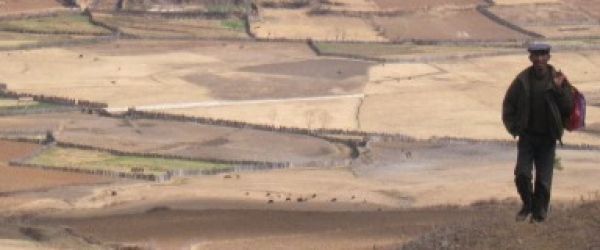
The refugee crisis calls for an unprecedented Christian response
By Amy Walters — I didn’t realize how hard it was for him to get here. For me as a toddler, I only had to walk down the hall to the couch where I would sit with him, my Vietnamese brother. I didn’t learn until years later that he was a refugee, that he endured a perilous boat journey, encountering storms and pirates, which together killed 1/3 of the passengers on board. I didn’t know that he had to leave without telling his family, without taking anything with him. I didn’t realize that when he left, he was only a child. All I knew was that Dong was part of my family now. And our favorite ritual was sitting on the couch together, waiting while mom cooked breakfast.
Dong’s story, of danger and goodbyes and upheaval, is the story of an increasing number of people. According to the UN High Commissioner on Refugees, every day last year, 42,500 people fled their homes. That’s 30 people per minute. Added to the number of people already living as refugees, that’s almost 60 million people
displaced. And, like my brother, Dong, over half of them were children.
The number of refugees around the world is growing at an alarming rate. In just four years, the daily average of people fleeing their homes quadrupled. According to the UN, one in every 122 humans is either a refugee or asylum-seeker abroad or internally displaced in their home country. And 6.4 million of those refugees came from people groups who have been in exile for longer than five years—most of them for more than 20.
Many refugees, like my Vietnamese brother Dong, come from places with very limited access to the gospel. And many of them flee to places that are more open or are even requesting help from Christian organizations. This offers us amazing opportunities to speak hope into their darkest hours. People enduring such upheaval tend to be more open to new communities and ideas.
So what can you do?
- Learn about refugees. There are many excellent resources available to learn about the refugee situation and how you and your church can get involved. You can start with these two podcast episodes: How Can the Church Respond to the Global Refugee Crisis? and What is Diaspora Ministry?
- Pray for refugees. Pray for safety, healing, provision, and peace. Pray most of all for many to embrace the undying hope of the gospel.
- Become a foster family to a refugee child. Adding two refugee boys to a household with three preschoolers was no doubt challenging for my parents. But it changed all of our lives for the better.
- Help refugees in your area. The President and Congress determine how many refugees can be resettled in the US each year. You can search for resettlement agencies in your area and find out what their needs are.
- Give to missionaries. God is calling people to go and serve among refugees around the world. You can be a key team member by helping to send them.
- Go yourself! SEND International has recently launched a strategic partnership to focus on reaching refugees. Check out SEND’s opportunities for more information.
Antonio Guterres, the UN High Commissioner for Refugees, said, “For an age of unprecedented mass displacement, we need an unprecedented humanitarian response.” I want to qualify that by calling for an unprecedented Christian response. We have the opportunity to respond, not just with physical and emotional help, but also with the life-giving power of the gospel.
What will you do?
Additional Posts





